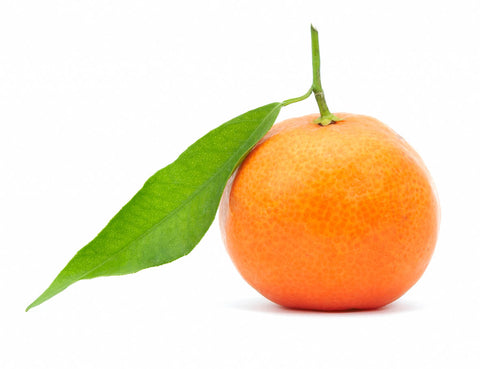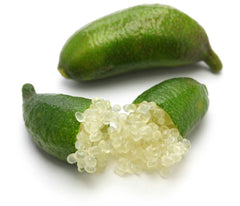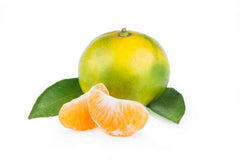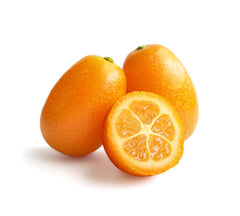What Does Mandarin Smell Like?
Black Friday Fragrance Deals
Click For Affordable Inspired Perfume Alternatives

In the realm of citrus splendor, the mandarin orange stands as a vibrant jewel, captivating the senses with its succulent sweetness and refreshing zest. Join us as we embark on a fragrant journey, unraveling the enticing aroma of mandarin orange—a citrus gem that not only delights the taste buds but also invigorates the olfactory senses with its lively and uplifting essence.
What Does Mandarin Orange Smell Like?
Mandarin orange, celebrated for its juicy brilliance, boasts a fragrance that is a harmonious blend of citrusy brightness and a subtly sweet undertone. Envision the burst of a ripe citrus fruit, coupled with the milder sweetness reminiscent of a sun-kissed orchard. Mandarin orange's scent is a celebration of citrus at its finest, providing a refreshing and uplifting olfactory journey.
Mandarin Orange's Citrus Ballet
Step into the world of mandarin orange, where the fragrance is a citrus ballet, capturing the essence of a sun-drenched orchard filled with citrus trees in full bloom. Let's explore the aromatic marvel that defines the spirit of mandarin orange.
Citrus Brilliance: A Sun-Kissed Overture
As you approach mandarin orange, the first olfactory encounter is a brilliance of citrus. Picture the zestiness of a perfectly ripe orange, but with a milder, more delicate touch. Mandarin orange's fragrance is a sun-kissed overture that immediately transports you to a radiant citrus grove.
Subtle Sweetness: Orchard's Ambrosia
Within the zestiness lies a subtle undercurrent of sweetness. The scent is akin to the natural sweetness found in perfectly ripened fruits, creating a delicate balance that adds depth to the overall aroma. Mandarin orange's fragrance is a celebration of orchard ambrosia, a sensory journey that tempts the taste buds with its sweet allure.
Floral Essence: Blooms in Sunshine
Delve deeper into the scent, and you may discover a hint of floral essence. It's as if the fragrance carries the whispers of mandarin blossoms in full bloom, adding a layer of sophistication to the overall aroma. The floral notes dance gracefully with the citrusy character, creating a fragrant symphony that is both refreshing and elegant.
Juicy Vibrancy: Burst of Refreshment
Mandarin orange's fragrance carries a juicy vibrancy, like the burst of refreshment from a succulent citrus slice. The scent is invigorating and revitalizing, making it a perfect companion for moments of rejuvenation and zestful indulgence.
Mandarin Orange's Olfactory Sonata
Hence, mandarin orange's fragrance is a sonata of citrus brilliance, subtle sweetness, floral essence, and juicy vibrancy. It stands as a testament to the citrusy splendor of this vibrant fruit, offering an olfactory experience that is both invigorating and refined. Mandarin orange, with its lively and complex aroma, invites us to savor the freshness found within its peel, a fragrant journey that unfolds with every delightful whiff.
Factors Influencing the Aroma of Mandarin Oranges
The aromatic profile of mandarin oranges, a citrus fruit known for its sweet and refreshing scent, is influenced by various factors. Here are some elements that contribute to the aroma of mandarin oranges:
-
Varietal Differences: Different varieties of mandarin oranges, such as Clementines, Satsumas, or Tangerines, exhibit distinct aromatic profiles. Varietal differences can result in variations in sweetness, tartness, and overall fragrance.
-
Ripeness: The stage of ripeness at which mandarin oranges are harvested significantly impacts their aroma. Ripe mandarins tend to have a more vibrant and pronounced fragrance compared to unripe ones, which may have a greener or more astringent scent.
-
Growing Conditions: Environmental factors, including soil quality, climate, and altitude, influence the chemical composition of essential oils in mandarin peels. These factors contribute to variations in scent among mandarins grown in different regions.
-
Harvesting Practices: The method and timing of harvesting can impact the aroma of mandarin oranges. Careful harvesting practices that avoid damage to the fruit and ensure optimal ripeness contribute to a more pleasant and aromatic experience.
-
Storage Conditions: How mandarin oranges are stored after harvest can affect their fragrance. Proper storage conditions, such as cool temperatures and appropriate humidity levels, help preserve the freshness of the fruit and its aroma.
-
Hybridization: Some mandarin varieties are the result of hybridization with other citrus fruits, leading to unique aromatic profiles. Hybrid varieties may exhibit a blend of fragrances from the parent fruits.
-
Geographical Origin: Mandarin oranges grown in different regions may have variations in their aromatic profiles due to differences in climate, soil composition, and other environmental factors. Regional influences contribute to the diversity of mandarin scents.
-
Age of the Fruit: The age of mandarin oranges can affect their aroma. Freshly harvested mandarins are likely to have a more vibrant and pronounced fragrance compared to older fruits, which may start to lose some of their aromatic intensity.
-
Cultivation Practices: Organic or traditional cultivation methods may influence the fragrance of mandarin oranges. The absence of synthetic chemicals can contribute to a more natural and unadulterated scent.
-
Post-Harvest Handling: Practices such as waxing, washing, or other post-harvest treatments can influence the aroma of mandarin oranges. These treatments may impact the integrity of the peel and, consequently, the fragrance.
-
Transportation: The conditions during transportation from the orchard to the market can impact the aroma of mandarin oranges. Proper handling and controlled temperatures help maintain the fruit's freshness and aroma.
-
Peel Essential Oils: The essential oils present in the peel of mandarin oranges are rich in aromatic compounds. The extraction and use of these essential oils, whether for culinary or fragrance purposes, contribute to the characteristic scent of mandarins.
-
Seasonal Variations: Mandarin oranges may exhibit variations in aroma based on the season of harvest. Factors such as sunlight exposure and temperature fluctuations during different seasons can influence the fruit's fragrance.
It's worth noting that the aroma of mandarin oranges is a key component of their overall sensory appeal. Individuals may have preferences for specific mandarin varieties or may appreciate the diverse aromas associated with mandarins from different regions. Exploring mandarin oranges from various sources allows consumers to enjoy the unique and delightful fragrance of this popular citrus fruit.
What to Look for When Choosing Mandarin Orange Fragrance Oil:
Selecting a mandarin orange fragrance oil can elevate your sensory experience, whether used in candles, diffusers, or personal care products. Consider these factors to ensure you choose a high-quality and authentic mandarin orange fragrance oil:
-
Natural vs. Synthetic: Determine whether the fragrance oil is derived from natural sources or created synthetically. Natural mandarin orange oils often capture the true essence of the fruit, providing a more authentic and vibrant scent.
-
Citrus Authenticity: Seek a fragrance oil that authentically captures the citrusy essence of mandarin oranges. The scent should be bright, zesty, and reminiscent of freshly peeled mandarin oranges.
-
Blend Ingredients: Check the ingredients used in the fragrance blend. A well-balanced combination of natural and synthetic components can contribute to a nuanced and long-lasting mandarin orange fragrance.
-
Longevity: Consider the longevity of the fragrance. A high-quality mandarin orange fragrance oil should offer a lasting scent, filling the space with a delightful citrus aroma without fading too quickly.
-
Versatility: Choose a versatile fragrance oil that can be used in various applications, such as candles, soaps, lotions, or diffusers. Versatility allows you to enjoy the uplifting scent in different settings.
-
Packaging: Assess the packaging of the fragrance oil. A dark or opaque bottle with a secure cap helps protect the oil from light exposure, preserving its freshness and potency.
-
No Residue or Discoloration: Ensure that the mandarin orange fragrance oil leaves no residue or discoloration when used in different mediums. A high-quality oil should seamlessly integrate into various products without causing unwanted effects.
-
Manufacturer Reputation: Research the reputation of the manufacturer or brand. Opt for well-established brands with positive reviews, as they are more likely to produce reliable and high-quality fragrance oils.
-
Testing Options: Look for fragrance oils that offer testing options or sample sizes. This allows you to experience the scent firsthand before committing to a larger quantity, ensuring it aligns with your preferences.
-
Ethical and Sustainable Practices: Consider the manufacturer's commitment to ethical and sustainable practices. Brands that prioritize responsible sourcing and environmentally friendly production contribute to a more conscientious choice.
By considering these factors, you'll be better equipped to choose a mandarin orange fragrance oil that not only meets your aromatic preferences but also ensures a high-quality and enjoyable olfactory experience in your living spaces or personal care products.
Where to Find Reputable Mandarin Orange Fragrance Oils
-
Specialty Candle and Soap Supply Stores: Explore specialty stores catering to candle-making and soap supplies, as they often carry a variety of fragrance oils, including mandarin orange scents. These stores may offer options suitable for crafting candles, soaps, and other scented products.
-
Online Fragrance Oil Retailers: Browse online platforms specializing in fragrance oils. Reputable websites and retailers dedicated to aromatherapy, candle making, or DIY crafting may have a diverse selection of mandarin orange fragrance oils. Read product descriptions and customer reviews for authenticity and quality.
-
Artisanal or Handmade Markets: Attend artisanal markets or craft fairs where independent sellers showcase handmade products. Artisan vendors sometimes offer unique fragrance oils, providing an opportunity to explore carefully crafted mandarin orange scents.
-
Local Craft and Hobby Shops: Check with local craft and hobby shops, as they may stock fragrance oils suitable for various crafting projects. Inquire about specific scents, including mandarin orange, to enhance your DIY creations.
-
Online Marketplaces: Platforms like Etsy or other online marketplaces featuring handmade or artisanal products can be sources for mandarin orange fragrance oils. Look for sellers who provide detailed information about their products and have positive customer reviews.
-
Aromatherapy Stores: Aromatherapy stores often carry a variety of fragrance oils for diffusers and other aromatherapy applications. Inquire about the availability of mandarin orange scents to add a citrusy aroma to your living space.
-
Local Essential Oil or Perfume Shops: Specialty shops that focus on essential oils or perfumes may carry mandarin orange fragrance oils. These stores often prioritize high-quality scents and may offer a range of citrus options.
-
Word of Mouth: Seek recommendations from friends, family, or members of crafting communities for trusted sources of mandarin orange fragrance oils. Personal experiences and suggestions can guide you to reputable suppliers known for quality scents.
-
Check Ingredients and Descriptions: Before making a purchase, carefully read product descriptions and check ingredient lists for mandarin orange fragrance oils. Authentic and reputable sellers provide clear information about the composition and intended use of their products.
Note: Always ensure that the fragrance oil you choose is suitable for your intended use, whether it's for candles, soaps, diffusers, or other DIY projects. Follow safety guidelines provided by the manufacturer for proper usage.
20 Questions and Answers about Mandarin Orange
-
Is mandarin orange a common note in perfumery? Yes, mandarin orange's bright and citrusy aroma is a popular and common note in perfumery, offering a lively and refreshing element.
-
Can mandarin orange be a dominant note in perfumes? Absolutely, mandarin orange is often used as a top note in perfumes, contributing its vibrant and zesty character to the initial burst of fragrance.
-
Does the scent of mandarin orange vary between different varieties? Yes, various varieties of mandarin oranges may have nuanced differences in their scent, influenced by factors such as ripeness and growing conditions.
-
Can mandarin orange be blended with other citrus notes in perfumery? Yes, mandarin orange harmonizes seamlessly with other citrus notes, creating a dynamic and refreshing bouquet in perfumes.
-
Does mandarin orange's scent have energizing properties? Yes, the bright and uplifting aroma of mandarin orange is often associated with an energizing and mood-lifting effect.
-
Is mandarin orange fragrance suitable for all genders? Mandarin orange's versatile and unisex fragrance makes it appealing across genders in the world of perfumery.
-
Can mandarin orange be used as a single-note fragrance? While less common, some perfumers appreciate the simplicity of mandarin orange as a standalone note, capturing its distinct citrusy character.
-
Is mandarin orange used in natural perfumery? Yes, mandarin orange's natural and fresh profile aligns well with the principles of natural and organic perfumery.
-
Does the climate affect the scent of mandarin orange? Mandarin oranges thrive in warm climates, and the intensity of their fragrance can be influenced by factors such as sunlight and temperature.
-
Can mandarin orange be used in scented candles? Yes, the invigorating scent of mandarin orange can be infused into candles, creating a lively and refreshing ambiance.
-
Are there cultural associations with the scent of mandarin orange? Mandarin oranges are often symbolic of prosperity and good fortune in certain cultures, and their fragrance is associated with auspicious occasions.
-
Can mandarin orange be used in culinary perfumery? Yes, mandarin orange's citrusy and sweet notes make it a delightful addition to culinary creations, enhancing the overall flavor profile.
-
Does mandarin orange's scent change with the fruit's ripeness? The fragrance of mandarin orange is most pronounced when the fruit is fully ripe, with a perfect balance of citrusy brightness and sweetness.
-
Is mandarin orange fragrance long-lasting in perfumes? While a top note, mandarin orange's fragrance can linger, especially when complemented by other long-lasting base notes in a perfume.
-
Can mandarin orange be used in room sprays for its fragrance? Yes, mandarin orange's invigorating scent makes it a popular choice for room sprays and air fresheners.
-
Does mandarin orange's fragrance have calming properties? While known for its energizing properties, mandarin orange's scent can also have a refreshing and calming effect on the mind.
-
Can mandarin orange be blended with floral notes in perfumery? Yes, the citrusy brightness of mandarin orange can complement floral notes, creating a well-balanced and uplifting fragrance.
-
Are there any known allergies to the fragrance of mandarin orange? Allergic reactions to mandarin orange's fragrance are rare, but individuals with citrus allergies should exercise caution.
-
Can mandarin orange's scent be influenced by soil composition? The quality of the soil can impact the potency of mandarin orange's fragrance, with well-drained and fertile soil enhancing its aromatic profile.
-
Is mandarin orange used in mainstream or niche perfumery? Mandarin orange finds its place in both mainstream and niche perfumery, appreciated for its versatile and universally appealing citrusy fragrance.
In Conclusion
Mandarin orange, with its vibrant and citrusy allure, invites us to savor the essence of a sun-kissed orchard. Its invigorating and uplifting fragrance, a testament to the zestiness of citrus, makes it a cherished ingredient in the world of perfumery. So, the next time you encounter the lively scent of mandarin orange, let it transport you to a place where the vibrant spirit of citrus dances on the breeze, awakening your senses to the beauty of nature's aromatic treasures.
Buy Perfumes - Best Online Retailers
Click For Affordable Inspired Perfume Alternatives
Click For The Best Niche Perfumes & Decants
Pheromone Perfumes - Confidence, Attraction & Appeal - Click For More
Home Fragrances & Candle Warmers - Click To Scent Up Your Spaces Today!



